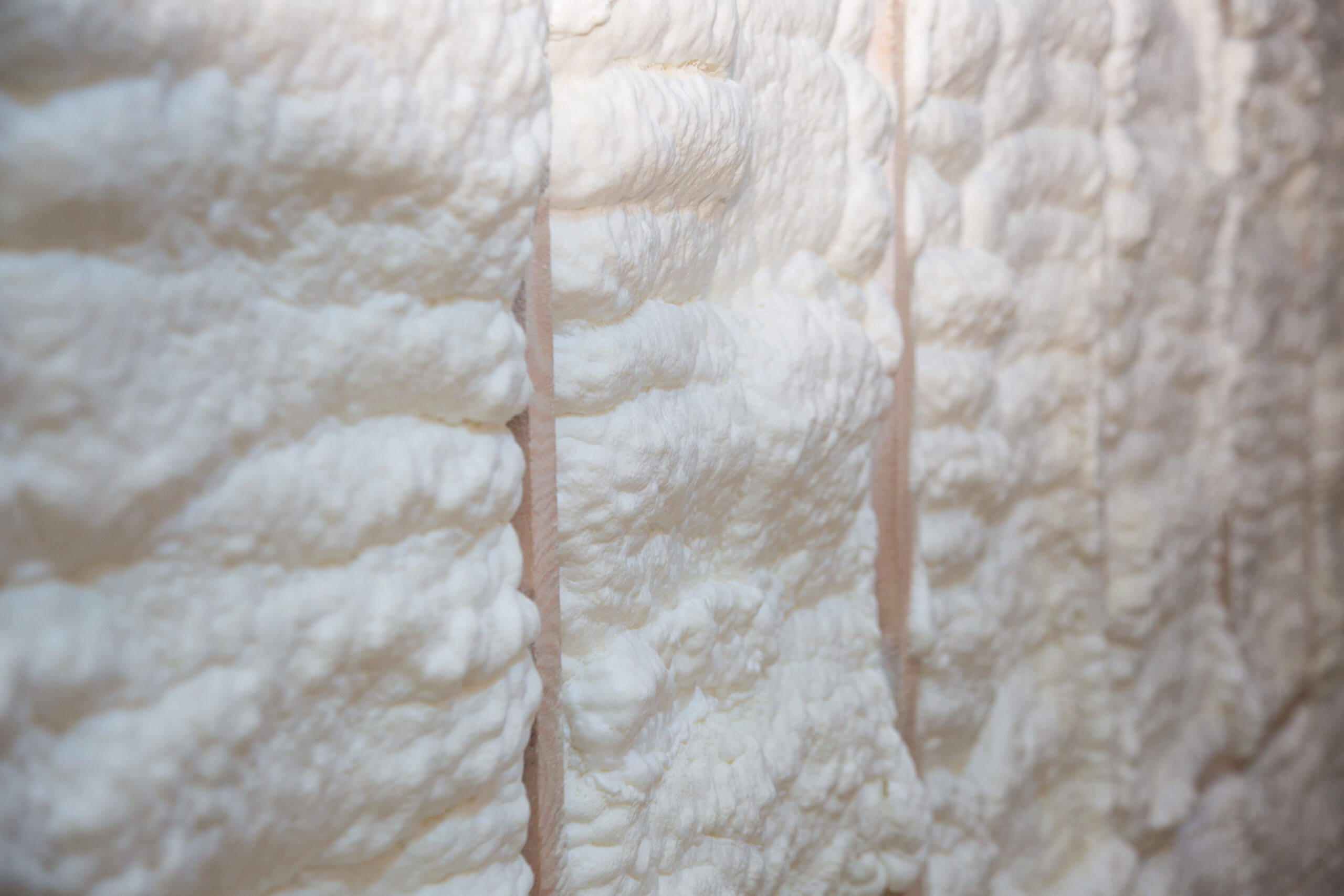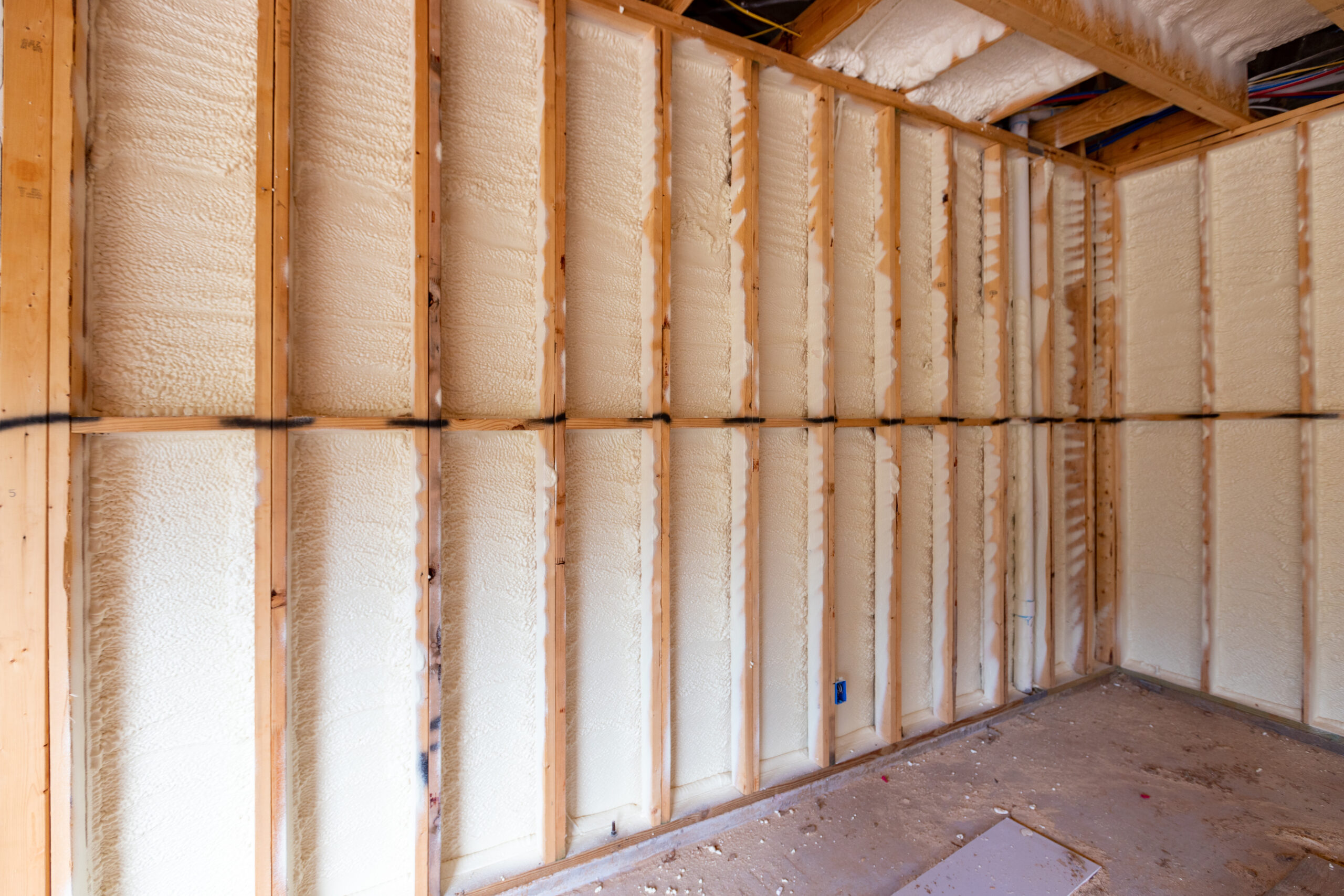When it comes to insulating a home or building, spray foam insulation is one of the most effective solutions available. However, not all spray foam is the same. The two primary types—open-cell spray foam and closed-cell spray foam—offer different benefits depending on the application. Understanding the differences between the two can help you determine which one is right for your project.
What is Open-Cell Spray Foam?
Open-cell spray foam is a lighter, softer insulation material with a sponge-like texture. It is made up of tiny cells that are not fully encapsulated, allowing air to fill the spaces within the foam. This gives it a lower density and makes it more flexible than closed-cell foam.

Benefits of Open-Cell Spray Foam:
Cost-Effective: Open-cell spray foam is typically less expensive than closed-cell foam due to its lower material density.
Sound Absorption: Because of its structure, open-cell foam provides excellent sound-dampening properties, making it ideal for interior walls and ceilings.
Vapor Permeability: It allows moisture to pass through, reducing the risk of trapped condensation in certain applications.
Expands to Fill Gaps: Open-cell foam expands significantly upon application, making it a great choice for hard-to-reach areas and irregular cavities.
When to Use Open-Cell Spray Foam:
Interior walls and ceilings where soundproofing is a priority
Attics and rooflines in warmer climates
Spaces where vapor permeability is necessary
Applications where budget is a primary concern
What is Closed-Cell Spray Foam?
Closed-cell spray foam is a denser, more rigid insulation material. Its cells are fully encapsulated and tightly packed together, creating a barrier that resists moisture and air infiltration. This high-density structure makes closed-cell foam stronger and more resistant to environmental factors.

Benefits of Closed-Cell Spray Foam:
Higher R-Value: Closed-cell foam has a superior insulation rating per inch, providing maximum thermal resistance.
Moisture Barrier: It is highly resistant to water and can help prevent mold and mildew growth.
Structural Strength: Due to its rigidity, closed-cell spray foam can add structural integrity to walls and roofs.
Excellent Air Seal: It prevents air leaks and reduces energy loss, making it ideal for extreme climates.
When to Use Closed-Cell Spray Foam:
Exterior walls and below-grade applications where moisture resistance is needed
Areas subject to high humidity or potential water exposure, such as crawl spaces and basements
Commercial and industrial applications where structural reinforcement is beneficial
Regions with extreme temperatures requiring higher insulation performance
Which One is Right for Your Project?
The choice between open-cell and closed-cell spray foam depends on factors such as budget, climate, moisture concerns, and application type. Open-cell spray foam is great for soundproofing and budget-friendly projects, while closed-cell spray foam offers superior insulation, moisture resistance, and structural support. Consulting with a spray foam expert can help ensure you select the best option for your specific needs.
Looking for high-quality spray foam solutions? Contact us today to find the best insulation for your project!
